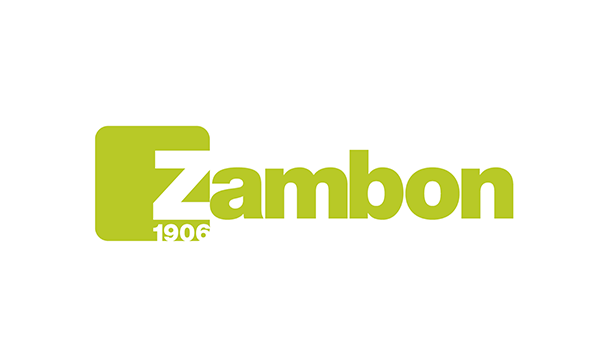Before you watch this webinar
Enhancing your learning experience begins with understanding you better. Collecting data enables us to tailor our educational content specifically for our audience. Discover more about how we handle your information in our Privacy Policy.
Event
Multidisciplinary and holistic approaches to supporting people with MND — from diagnosis to end of life
Our sponsor

This webinar has received sponsorship from Zambon UK Ltd. The sponsor has had no input into the educational content or organisation of the session
MND Academy webinar
This 45-minute webinar will provide a practical, multidisciplinary update on the management of motor neurone disease (MND) from diagnosis through to end of life.
Bringing together expertise from neurology, nursing, and palliative care, the session will explore how to communicate effectively at the initial appointment, outline current and emerging treatment options, and share approaches to holistic care planning. Attendees will gain insights into supporting people with MND and their families with clear, empowering information while balancing complex clinical needs, research opportunities, and end-of-life discussions.
Webinar objectives
- Outline best practice for initial consultations at MND diagnosis – including how to introduce clinical trials, discuss current treatment pathways, and approach late presentations with sensitivity and clarity.
- Apply practical approaches to holistic, multidisciplinary care throughout the course of MND – from diagnosis to end of life, incorporating palliative care principles, advance care planning, ADRTs, and effective team working.
- Recognise the role of specialist nursing in supporting people with MND – addressing domains of dysfunction (motor, bulbar, respiratory, cognitive), use of interventions such as NIV and gastrostomy, outcome measures, and strategies to empower patients while avoiding unnecessary or overwhelming interactions.
Presentation slides
Resource: Everyday general advice for good oral health
Webinar summary
People with motor neurone disease (MND) require a coordinated and multidisciplinary approach to care that reflects the complexity of the condition, and its management.
In a recent Neurology Academy webinar, experts explored the continuum of support, from the initial consultation and diagnosis to ongoing multidisciplinary team (MDT) management, to advanced care planning, and end-of-life care.
Initial MND consultation
Dr Pablo Garcia-Reitboeck, consultant neurologist at St George’s University Hospital NHS Foundation Trust, set out the best practice approach to the initial consultation in MND clinic.
It starts with a review of the history, examination and diagnostic work-up, including MRI, EMG, and bloods. When people are given a diagnosis of MND, the team will also offer an explanation of the disease, tailored to the person's existing knowledge base.
“I always ask the patient what they know about MND, and how much they want to know, so I can gauge how much information I give them, and how,” said Pablo. “This can sometimes be challenging.”
The team will also talk about the impact of the condition on respiratory function, the role of nutritional management, medications, and introduce the concept of multidisciplinary team (DMT) care. Advanced care planning will be mentioned, but not discussed in detail, along with genetics, and clinical trials.
“There is progress (in research) and I think it is very important to be part of that, and to offer patients the possibility to find a cure for this terminal illness,” Pablo said.
Common challenges during these initial consultations include diagnostic uncertainty, late presentation, and, in particular, patients not being prepared for the diagnosis.
Pablo said: “Either they haven't been told it might be MND, or they lack understanding of the condition and are not aware it is a terminal illness. This makes it very difficult to discuss, and it needs to be done very sensitively. I'm still learning how to do this in the best possible way to minimise distress.”
They also talk about treatment and interventions, such as Riluzole, non-invasive ventilation, nutrition and weight management, and managing symptoms like secretions, cramps, and pain.
Ongoing MDT support
While MND services are varied across the country, and MDT approach is vital, said Dr Emma Husbands, palliative care consultant, Gloucestershire Hospitals NHS Foundation Trust.
As such “establishing an understanding of your local structure” and knowing “your phone a friends” is one of “the most important things” healthcare professionals working in MND can do, she added.
Specialist palliative care (SCS) practitioners tend to come from a wide range of backgrounds, and the role can vary from region to region. They can usually, Emma went on, recommend “more unusual symptom control measures”, such as magnesium cream for pain and cramps, or clonidine for salivatory secretions.
Advanced care planning is “another key part of the MDT approach”, yet is often underused. Without it, Emma said, “we risk the under or over treatment of people that results in poor quality of life.
“Often, the reason for underutilisation is misconceptions about what palliative care means and the goal of advanced care planning. There are fears that we can remove hope by having these conversations: that we can cause distress,” she went on.
However, the “evidence consistently shows that people expect clinicians to be leading these conversations”, and that they actually enhance the healthcare professional/patient relationship.
Explained Emma: “These are conversations about life and living planning. It is a continuous process of communication and developing an understanding of what matters to that individual.”
Points to be documented in an advanced care plan include any discussions around life-sustaining measures, any emergency contacts within the person’s healthcare team, and their values and fears.
The dying phase of MND can be rapid, so it is important to understand the predictors of decline, such as a silent chest and increased fatigue, she went on. “Death may be unexpected, but it shouldn't necessarily be a surprise,” Emma said.
Nursing and holistic care planning
The MDT is wide ranging in MND, from neurologists, gastroenterologists and GPs, to allied health professionals and social workers.
Judith Newton, MND national nurse consultant and deputy director of the Anne Rowling Regenerative Neurology Clinic, said part of role of the MND specialist nurse was to co-ordinate care and ensure communication across the MDT. And rapid clinical assessment, using validated outcome measures, at initial contact is vital to this.
“No two people will present the same,” she said. “If you can assess the rapidity of the disease in front of you, the level of dysfunction, and the timescale you are dealing with, it can help you plan that person's care and the speed that you need to work at.”
Assessment, she went on, includes evaluation of cognition (Edinburgh Cognitive and Behavioural ALS Screen [ECAS]), function (ALS Functional Rating Scale [ALSFRS]) staging (King’s ALS Staging), and respiratory function.
“If you can sit in with your consultant neurologist, either at the first appointment or any subsequent, it's really helpful,” said Judith. “You can pick up on some early signs that might not yet be manifested in any issues they might have… so you can start to plan ahead.”
UK MND nurses tend to plan discussions and interventions six months ahead. “When do we start to talk about gastrostomy, about non-invasive ventilation, a wheelchair, voice banking, etc? The sooner that you can get on top of those, the better.”
Understanding the person’s cognitive status, using the 20-minute ECAS for example, can help healthcare professionals to tailor care, she went on.
Executive dysfunction, she explained, will impact on the person’s decision making ability. If it is identified, nurses can advise fellow MDT members, and make sure everything is done to ensure the person has all the information they need in an accessible manner.
Judith said the key to everything was early discussion, with conversations about advanced care planning starting “on day one”, and repeat assessment. It is about ensuring the person remains in control. “Ask them what they want, and how and where they want to be looked after.”
Our sponsor

This webinar has received sponsorship from Zambon UK Ltd. The sponsor has had no input into the educational content or organisation of the session
Chair
 Ruth Stross
Ruth StrossDirector of services, MS Trust
Speakers
 Dr Pablo Garcia-Reitboeck
Dr Pablo Garcia-ReitboeckConsultant neurologist, St George's University Hospitals NHS Foundation Trust
 Judith Newton
Judith NewtonMND national nurse consultant and deputy director, Anne Rowling Regenerative Neurology Clinic
 Dr Emma Husbands
Dr Emma HusbandsPalliative care consultant, Gloucestershire Hospitals NHS Foundation Trust
MND Academy
Better understanding, optimised management, improved quality of life